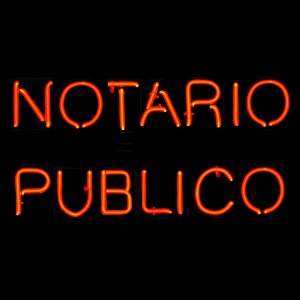 The surge of migrant children attempting to cross the Mexico-U.S. border this year has brought attention to immigration issues nationwide. Five states have passed laws and administrative rules in 2014 to guide Notaries dealing with immigration-related notarizations and stop criminals from misusing the title “Notary Public” to defraud immigrants seeking legal assistance.
The surge of migrant children attempting to cross the Mexico-U.S. border this year has brought attention to immigration issues nationwide. Five states have passed laws and administrative rules in 2014 to guide Notaries dealing with immigration-related notarizations and stop criminals from misusing the title “Notary Public” to defraud immigrants seeking legal assistance.
Because Notaries in many other countries provide different services than their counterparts in the United States, immigrants often mistakenly believe U.S. Notaries can assist them with immigration issues. Dishonest individuals take advantage of this misunderstanding by advertising using the title “notario” or “notario publico” to defraud immigrants, charging them large sums of money for ineffective or fraudulent legal services.
As a result, many states have enacted laws strictly regulating foreign language advertising for Notaries and limiting what services Notaries may provide to immigrants to prevent signers from being victimized. Below are the latest 2014 state laws and administrative rules affecting Notary immigration service issues:
Nebraska
NE Administrative Rule (2014), which took effect May 28, states that any Notary who engages in unauthorized practice of law or misuses the term “notario publico” or any non-English equivalent to misrepresent the Notary’s authority may have their commission permanently revoked by the Secretary of State with no possibility of reinstatement.
Nevada
Assembly Bill 74, which took effect March 1, enacts detailed rules for the oversight and conduct of nonattorneys who offer document preparation services. Persons offering such services must register with the Secretary of State’s office and file a $50,000 surety bond; may not offer unauthorized legal advice or legal services and are prohibited from advertising using the terms “Notary,” “Notary Public,” “legal aid” or other terms that incorrectly imply the registrant offering the service is an attorney or offers services at no cost if the registrant does not do so.
South Carolina
Senate Bill 356, which took effect June 2, was a major revision of state Notary laws. It prohibits Notaries from using the term “notario publico” or any equivalent non-English term in business cards, advertisements, notices or signs. The law also requires nonattorney Notaries who advertise in languages other than English to include disclaimers in English and any other language used that the Notary is not an attorney and may not give legal advice or accept fees for legal advice. The disclaimer must also include the statutory fee schedule for South Carolina Notaries.
Virginia
House Bill 492 and Senate Bill 503, which took effect July 1, prohibit Notaries from offering or providing legal advice on immigration matters or representing any person in immigration proceedings, unless the Notary is licensed to practice law in Virginia, accredited to practice immigration law or accredited to represent persons in immigration proceedings. The new law also prohibits nonattorney Notaries from advertising using foreign-language titles that indicate the Notary is authorized to practice law or give legal advice. Persons who violate the new law may be fined $500 for the first offense, $1,000 for each subsequent offense and have their Notary commission revoked.
West Virginia
House Bill 4012, which took effect July 1, made extensive updates to the state’s Notary laws, including a prohibition against nonattorney Notaries from using the term “notario” or “notario publico.”
Additional information on other state laws affecting Notaries and immigration-related services is available through the NNA’s searchable Law Updates online database.
David Thun is the Assistant Managing Editor with the National Notary Association.